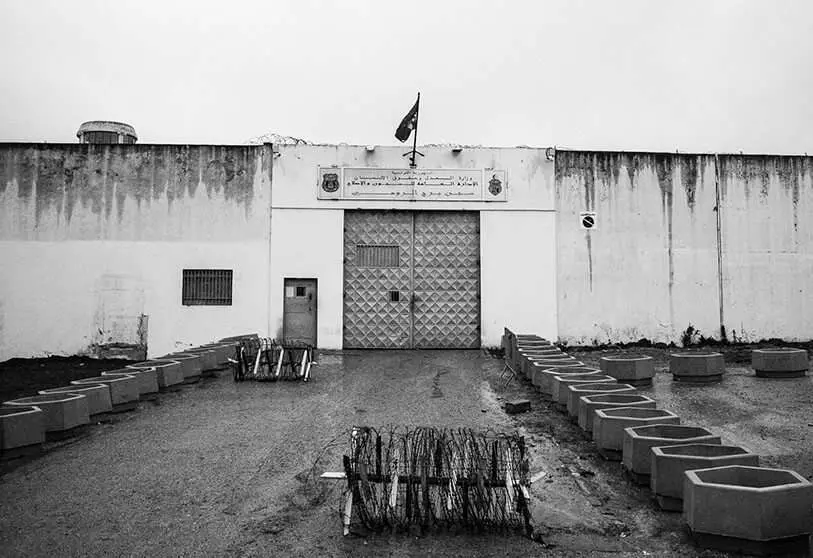Tunisia: return to the death penalty?

Facts are the barometers of societies and bring to the surface their intrinsic components. This is the case with the sad story of the rape and murder of Rahma Lahmar, a 29-year-old woman in Aïn Zaghouan, a suburb of Tunis. Public opinion, shocked by the crime, did not hesitate to express its anger, first on the social networks which were rapidly set ablaze, then by a march towards the presidency. The shocked crowd asked the president to intervene in the case personally and called for the application of the death penalty.
Although it exists in the Tunisian legal arsenal, the death penalty has not been applied since Ben Ali's term in office. Although the sentence continues to be handed down, particularly against terrorists, it has been commuted to life imprisonment since 1991.
President Kaïs Saïed, who was elected by universal suffrage and enjoys broad popular support, has not failed to meet the people's expectations. "Anyone who kills a person for no reason deserves the death penalty," said the tenant of the Carthage Palace and a lawyer by training.
This sentence was heard as a resounding yes by the people, which also caused a protest. NGOs and other international bodies calling for the abolition of the death penalty worldwide consider this response "a clear step backwards in Tunisia. In addition, the video in which the president appears to be talking about this sad issue has been removed from the president's Facebook page.
For his part, former interim president Moncef Marzouki opposed the resumption of executions. "I hoped that Tunisia would be the first Arab country to abolish the death penalty," he said, describing it as "a weapon of tyranny".
Setting an example, doing justice, are the arguments of those who call for the death penalty, but for Amnesty International, governments that execute terrorists, for example, do not set an example and do not protect their citizens, they make them martyrs! This, moreover, helps to rally their troops.
Since the 2014 elections, Tunisia has opted for a very broad coalition and the new constitution has been acclaimed for enshrining "the right to life".
Rights and freedoms are at the heart of today's political debate in Tunisia, the breeding ground and substrate of the 2011 Revolution that led to the departure of President Ben Ali.
"Today they are calling for the death penalty for an atrocious murder, tomorrow a Senegalese student will commit a crime, and they will be seen screaming for the hunt for foreigners... the day after tomorrow, an attack in the city centre, and then they will be seen calling for the reinstatement of torture...", insists Tunisian cartoonist Z on his website Débat Tunisie (Debate Tunisia).
"A resumption of executions would be an insult to all the progress made by the country in terms of human rights," said Amna Guellali, Amnesty International's Deputy Regional Director.
Statistically speaking, the death penalty has no preventive value. Should evil be cured by evil? What should take precedence over revenge or justice? "Each society can make its own choice and the text is clear in the case of Tunisia," responded the Tunisian President, referring to the reference texts and supporting his position on the application of the death penalty.
It should be noted that the investigation is still ongoing, even though the accused has confessed to the crime, but the details of the murder and its context have not been clarified. Is justice a matter for all or only for dedicated judges and ministries?
A week before this sad story, another femicide had shaken Tunisia and the victim's families had also called for the application of the death penalty. Moreover, Rahma's father had told the press that if the man who killed his daughter was not sentenced to death, he would commit suicide.
This talk of desperation tests the limits of the laws of the Republic and the right to life. Between those who ask to keep a cool head and not give in to emotion and those who ask for revenge, the exchanges are often violent.
By chance, two other stories of rape and murder shook Algeria and Morocco at the same time. Eighteen-year-old Chaïma was raped, her throat slit and burnt to death in East Algiers and Tangier, while 11-year-old Adnan was raped and murdered by a neighbour. Strong tensions followed these murders.
In Algeria there were calls for the application of Quissas, - the law of retaliation - the hashtag Quissas quickly went viral, the same reactions were expressed in Morocco.
The death penalty has been abolished in practice and not in law in these three Maghreb countries, an ambiguity that suggests the possibility of a return to executions.
Since Tunisia's independence, 135 executions have taken place, most of them during Bourguiba's reign. Algeria and Morocco have not executed any prisoners since 1993. In the absence of a clear political position, these countries can legally carry out executions as long as the legal arsenal allows.

